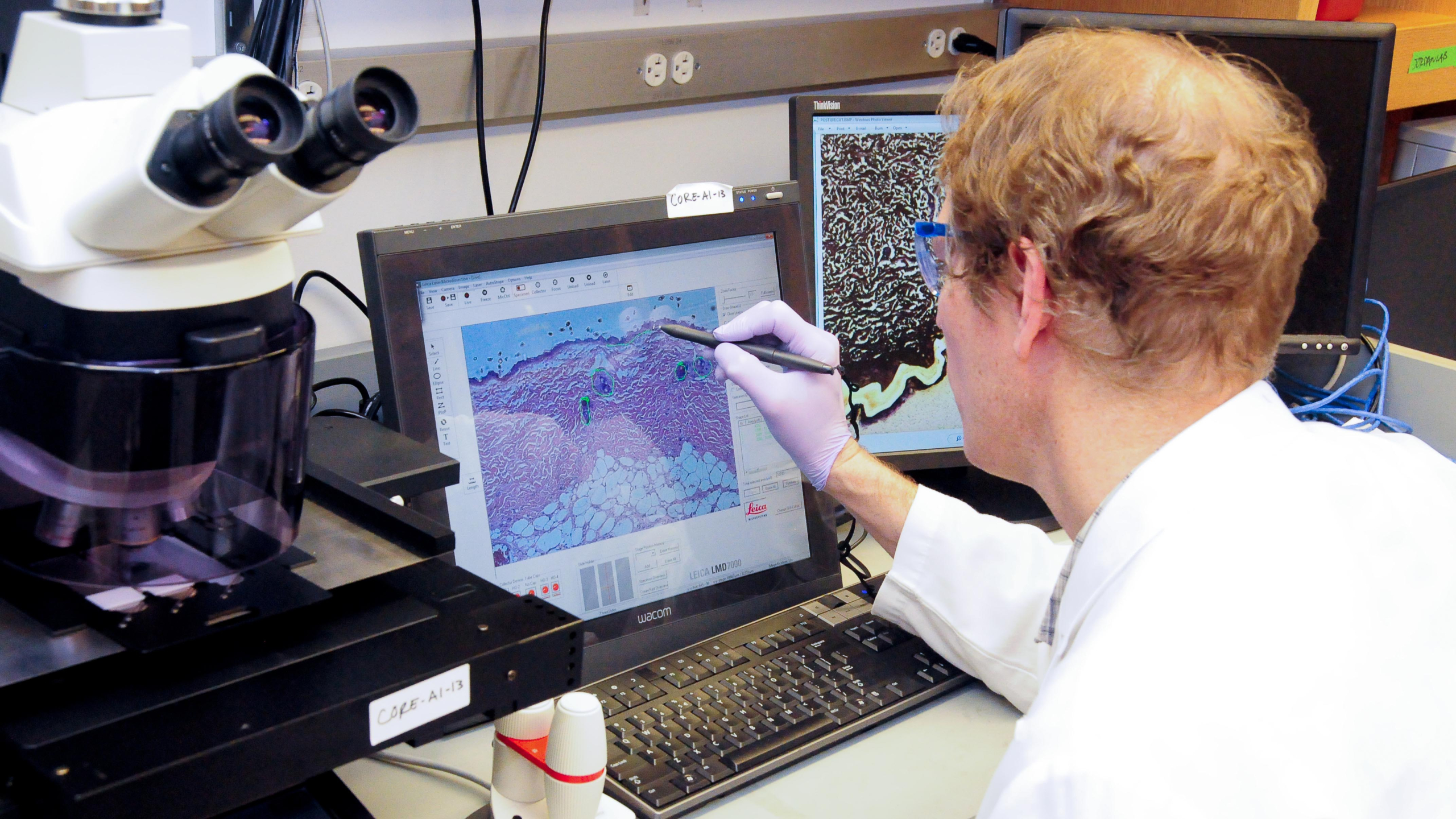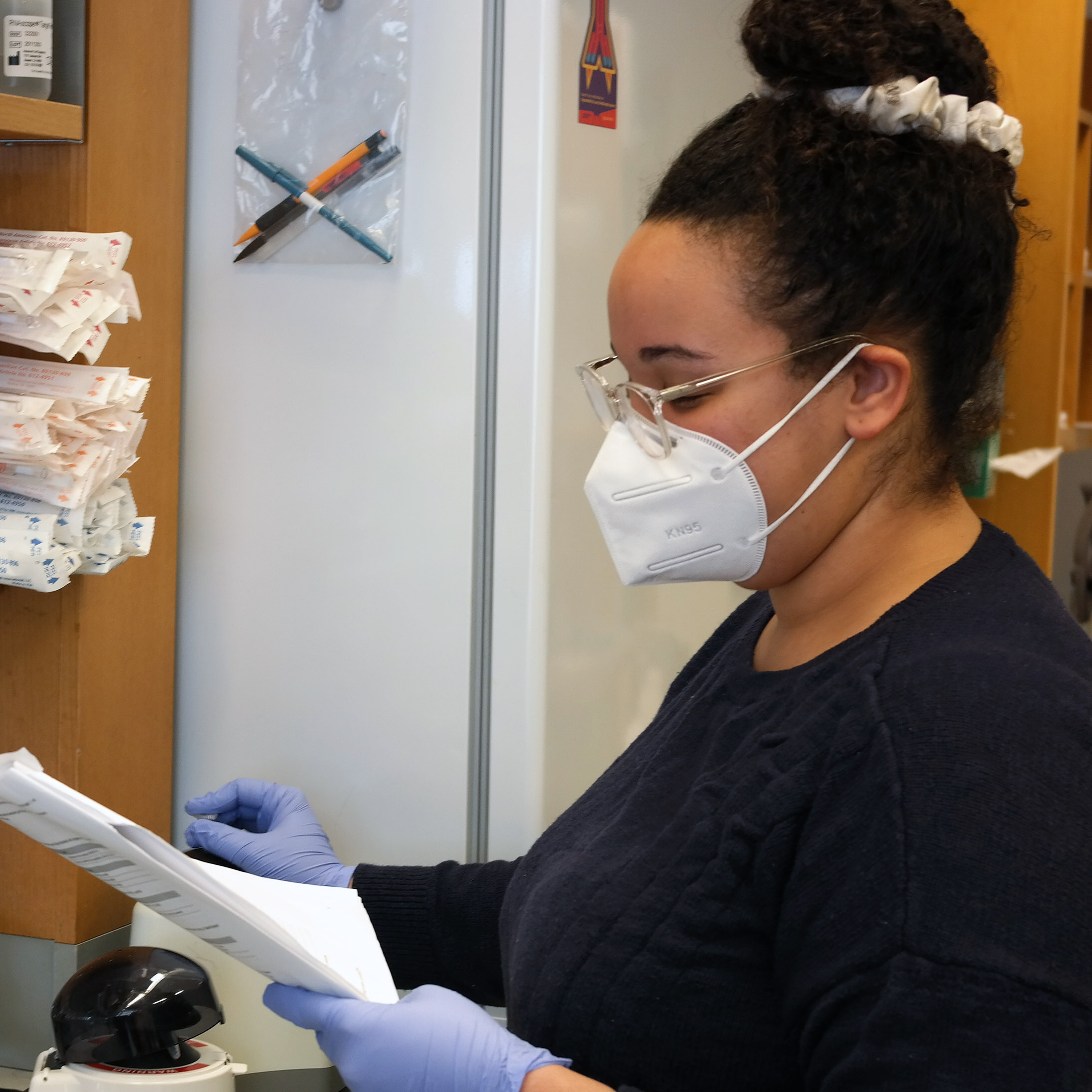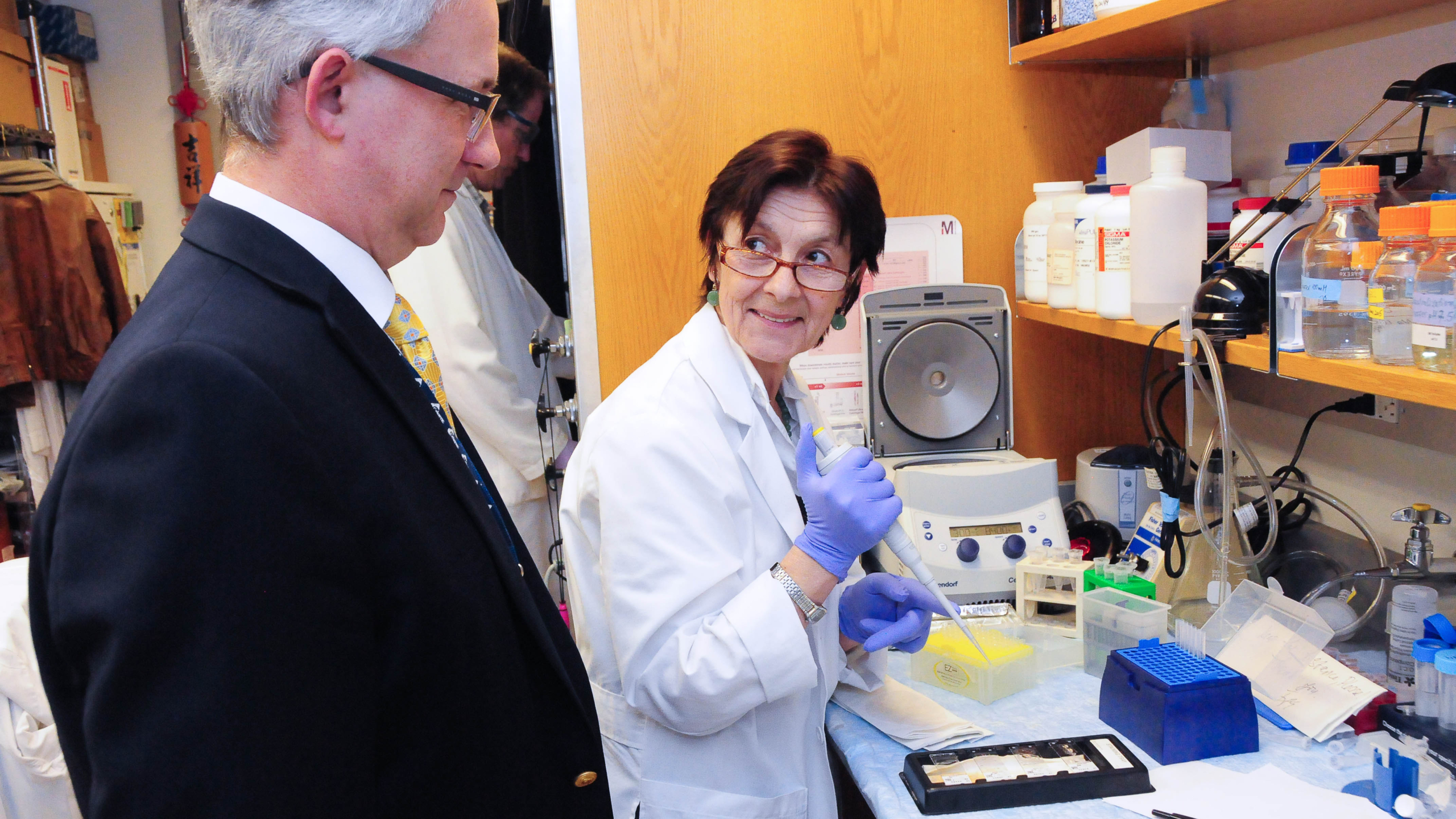Postdoctoral & Predoctoral Research Fellowships
The Department of Dermatology at the University of Pennsylvania has a long history of successful research in cutaneous biology and, more recently, in clinical epidemiology. In addition to other funding sources, our NIH T32 Dermatology Training Grant funds up to four post-doctoral and two pre-doctoral fellows per year. NIH T32-funded positions are limited to US citizens and permanent residents.
Each Research Fellow works under the direction of a faculty mentor, or Trainer. In addition, each Fellow takes part in enrichment activities including departmental research seminars, a trainee research day, mentoring and advising, and career development workshops. The University also provides a Research Fellowship infrastructure that includes benefits and special seminars covering multiple areas such as safe laboratory techniques, ethics, grant writing, career opportunities, and others.
Our goal is to train Research Fellows to become independent investigators in either academics or industry
Skin diseases are extremely prevalent, represent a significant health burden, and predispose individuals to systemic conditions such as inflammatory diseases and heart disease. The goal of this training program is to identify and train the next generation of leaders in cutaneous biology, skin diseases, and dermatoepidemiology.
Our program involves 30+ highly qualified Trainers drawn from the Department of Dermatology and from other schools and departments across the University of Pennsylvania. Trainers are grouped into focus areas based on expertise and types of projects available to trainees. These focus areas include:
- Development, regeneration, hair follicles/adnexal, cell biology
- Inflammation, autoimmunity, immunity, microbiome, infection
- Epidemiology, patient-oriented research, clinical trials, medicalinformatics
- Epithelial differentiation, proliferation, carcinogenesis
- Skin ‘omics & informatics
Number of Positions per Year:
Up to 2 pre-doctoral and 4 post-doctoral fellowships, openings each year vary
Program Requirements and Benefits:
- Stipends and benefits
- Post-doctoral fellow stipend and benefits are in accordance with the University of Pennsylvania’s Postdoctoral Benefits Policy
- Pre-doctoral fellow stipends and benefits are in accordance with BGSand/or MSTP Policies, see their websites for details
- Note on stipends:
- The T32 will provide stipend funding in accordance with the NIH NRSA Fellow Stipend Levels
- The Trainer will be responsible for covering the difference to meet the increased University of Pennsylvania stipend rate
- NIH T32-funded positions are limited to US citizens and permanent residents
- Education/Training Requirements:
- Pre-doctoral fellowships: must be currently pursuing PhD, MD, MD PhD, VMD PhD, MD MSCE, or equivalent degrees.
- Post-doctoral fellowships: require a minimum of an MD or PhD degree.
- Appointees must be fully committed to conducting a minimum of 1 year of research. Requests for less than 12 months appointment will not be considered.
- Appointees are required to participate in Dermatology Training Program activities, including:
- Trainee seminars
- Mentoring meetings with the program directors
- Professional development workshops (eg. grant-writing)
- Present their research at Dermatology Tuesday Research Seminar Series and the annual Dermatology Research Day.
- Submit annual progress reports
- Limited tuition assistance may be available for those pursuing an MSCE or MSTR
- Fellows are also provided a small stipend for research-related travel and supplies
- Post-doctoral appointees are required to engage in 2 years of research, teaching, or health-related activities. See https://grants.nih.gov/grants/policy/nihgps/html5/section_11/11.4_payback_requirements.htm
Additional Information:
All applicants must be in training in a University of Pennsylvania Research Lab at the time of submission. Applicants are evaluated on their research plan, commitment to a career in academic research, and proven track record with their trainer (one year experience in trainer’s lab is preferred).
For questions about the program or additional information please contact PennDermT32@pennmedicine.upenn.edu.
Application Deadline:
April 1, 2026






